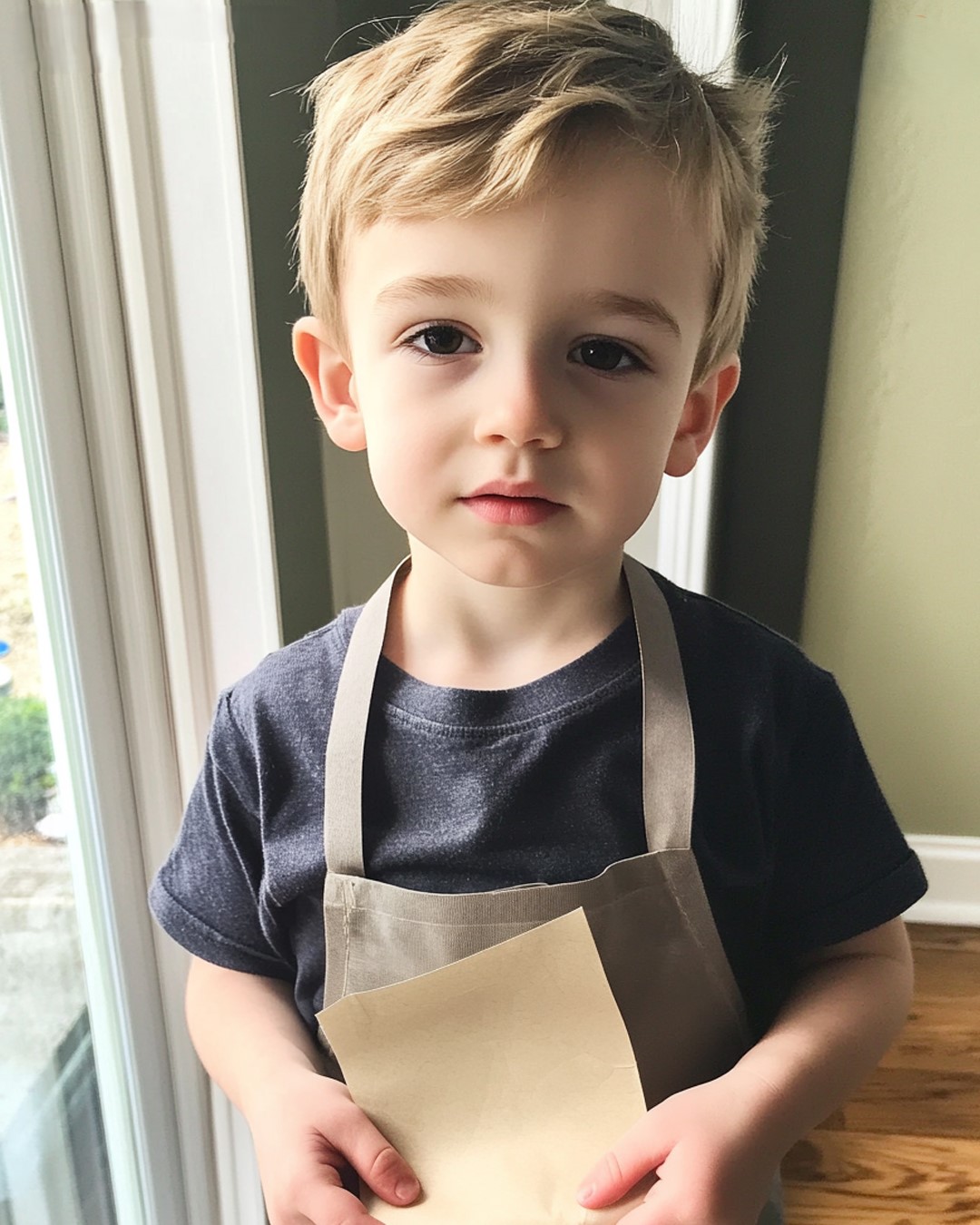My Son Visited Our Neighbor Daily To Cook, I Walked in One Day and Called the Police

My son made friends with the one neighbor everyone in our cul-de-sac avoided—even me. I wasn’t too worried at first, until he started coming home with cash in his pocket. He was only seven. I had to find out what was going on, and before I knew it, the police were at her house.
Most parents will understand when I say it’s crucial to be vigilant about the adults around our kids. But like many others, I thought even the most reclusive person in our neighborhood was harmless.
Let me give you some context. I’m Kayla, a 32-year-old single mom to my seven-year-old son, Eli. We live in a quiet neighborhood where people have tidy lawns, wave in passing, and know each other by name. It’s a place where I thought I could let my guard down, where neighbors seemed safe.
Eli and I have our little projects, like the vegetable garden out front or the birdfeeder we built from scratch. He’s a kid who loves helping, and I couldn’t be prouder. Which is why his recent friendship with Ms. Eleanor seemed a little odd—but only at first.
Ms. Eleanor lives at the far end of the street in an old ivy-covered house with wild hedges and towering oak trees. The kind of place that looks like it belongs in a Halloween story, with curtains that are always drawn. She’s in her seventies, a mystery to everyone, and not exactly a friendly neighbor.
So, when Eli burst through the door one afternoon and announced, “Mom! Ms. Eleanor asked me to bake cookies with her!” I was caught off guard.
“Ms. Eleanor? The lady at the end of the street?” I asked, stirring the stew on the stove.
“Yeah! She said we’re making them from scratch. Can I go?”
It was strange, but Eli was excited. So I shrugged it off and agreed. “Just be polite and come back before dinner, okay?”
As he zipped out the door, I found myself both smiling and slightly concerned. Ms. Eleanor was a stranger, after all, and I had never talked to her. But she was just an old lady. What harm could there be?
Eli returned that evening, proud and holding a plate of slightly burnt cookies. “Look, Mom! Ms. Eleanor let me bake them myself!”
He told me about her old-fashioned kitchen and how she promised to make more of his favorite treats. I was touched by how much joy this friendship seemed to bring him. Maybe it was good for him to spend time with someone who could teach him patience and skills.
Over the next few weeks, Eli’s visits to Ms. Eleanor’s became a regular occurrence. He’d return each day with new stories and, eventually, even money. “Ms. Eleanor says I deserve some for all my help,” he explained, showing off a $10 bill.
That’s when my mom instincts kicked in. “Honey, Ms. Eleanor is already covering the baking supplies and teaching you. Why is she paying you?”
“She said since she’s eating what I bake, I should get something in return!” he replied, cheerfully clueless.
The following week, things took a darker turn. Eli came home with $20 this time. I couldn’t brush it off anymore—why was this elderly woman paying him increasingly larger sums?
When I asked him if there was more to their visits than baking, he hesitated, then mumbled something about a “surprise” he couldn’t tell me about. That night, I couldn’t sleep. Was there something else going on?
I decided to take matters into my own hands. The next afternoon, I offered to walk Eli over to Ms. Eleanor’s. When he ran inside, I lingered, finding a slight opening at one of the windows. Peering through, I saw something that sent a chill down my spine.
Eli wasn’t baking. He and Ms. Eleanor were huddled at a table covered in photos. I could make out some of them—pictures of Eli and me, around town and at neighborhood gatherings, including candid shots I hadn’t shared anywhere. My heart dropped.
Panicking, I walked to her back door, which was surprisingly unlocked. I barged in, startling both Eli and Ms. Eleanor. “What’s going on here?” I demanded.
Ms. Eleanor went pale, stammering, “Kayla, I…I didn’t mean for you to see this.”
I scanned the photos on the table—some from social media, but many taken without my knowledge. “I’m calling the police!” I yelled.
Before long, officers arrived, and we waited outside as they spoke with Ms. Eleanor. I was prepared for the worst, but when one of the officers finally emerged, she wore a surprisingly gentle smile.
Inside, Ms. Eleanor explained with trembling hands. “Kayla, I’m so sorry. I was never trying to hurt Eli. He…reminds me of my grandson who passed away. I started this collection for him years ago and never stopped. I asked Eli to help me organize it as a tribute.”
Looking around her home, I began to see the reality—walls lined with photos of her late family, mementos of a life lived mostly alone. Ms. Eleanor had simply been trying to fill a void, using my son’s kindness as a bridge to the past.
We agreed that Eli’s visits should have some boundaries, and I reminded her to be open about anything involving him in the future. But as I took Eli’s hand and walked home, I understood more about loneliness—and about Eli’s remarkable empathy.